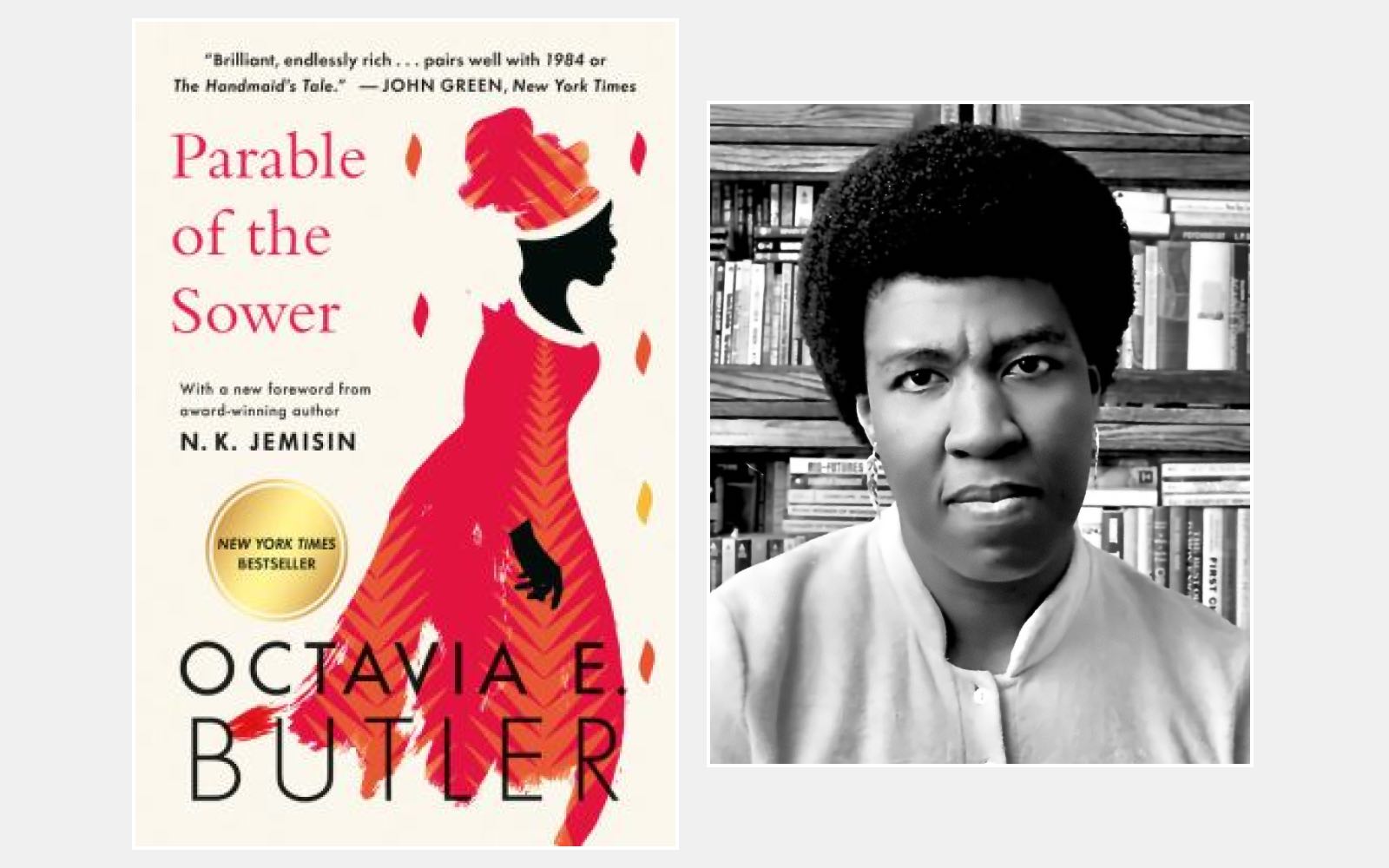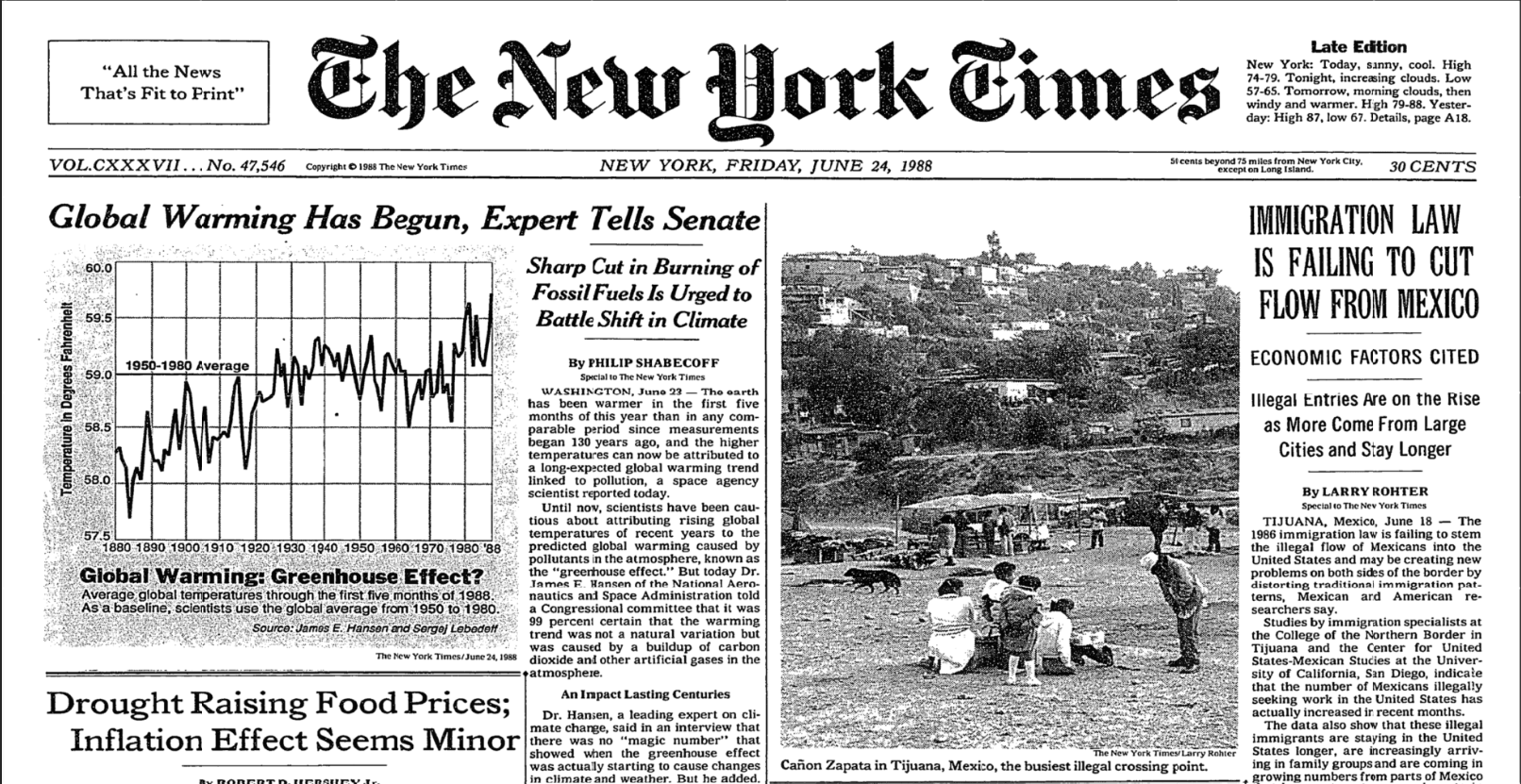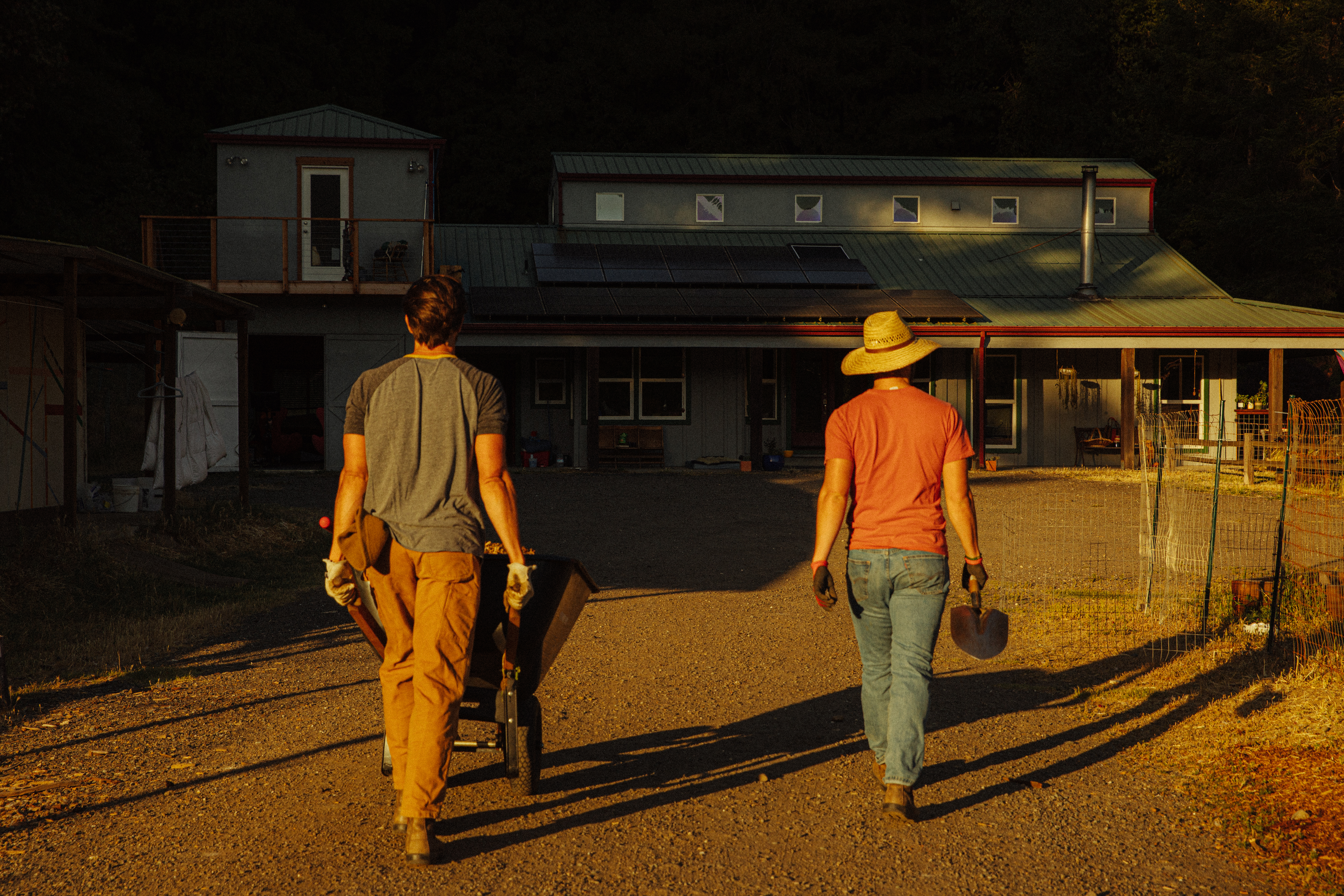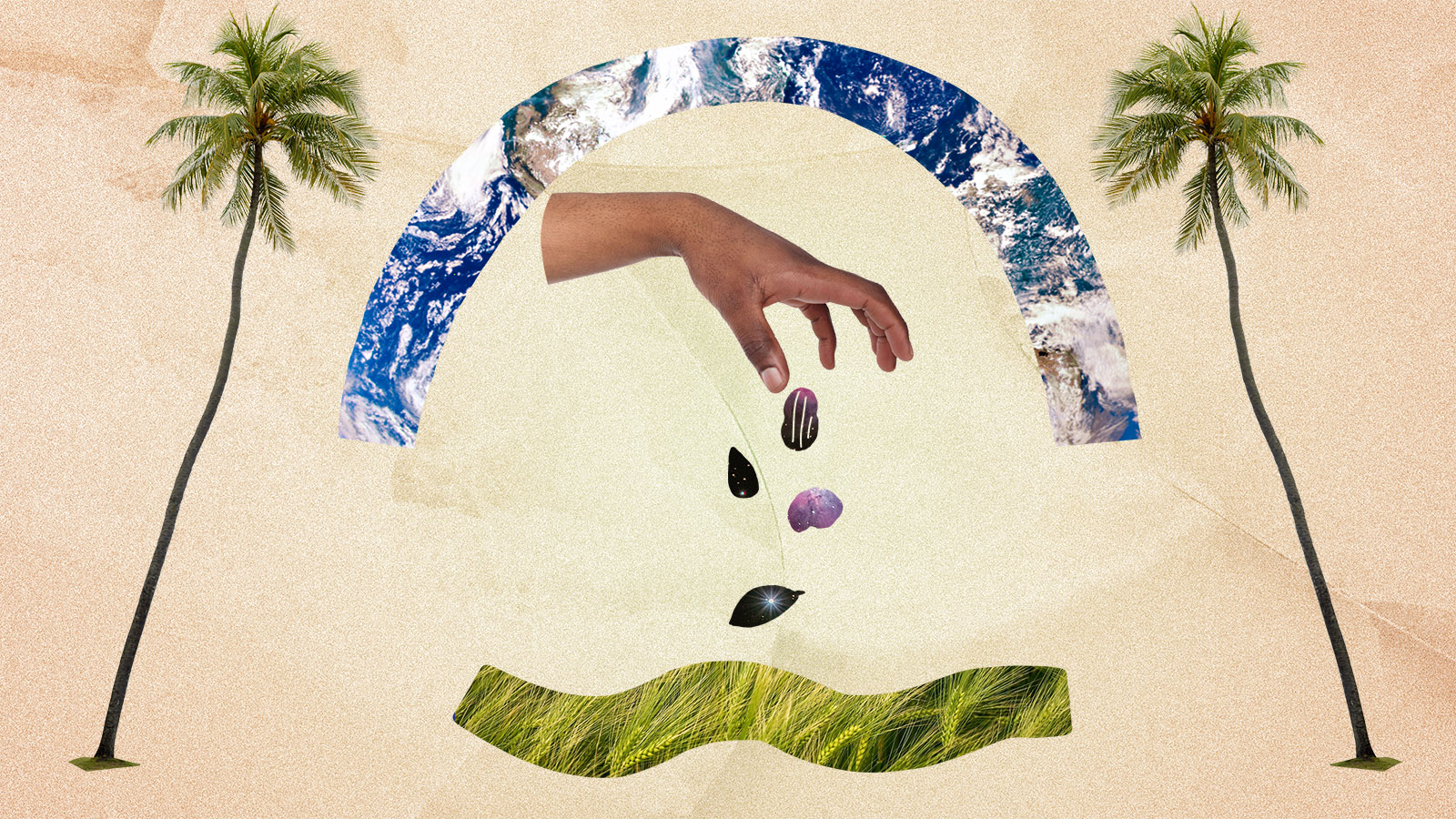On July 20, 2024, Lauren Olamina turned 15.
Or, at least, she did in Octavia E. Butler’s Parable of the Sower. The 1993 dystopian classic recounts the life and times of a Black girl who shares the pain of others. Lauren lives with this burden in a version of the present that greed, poverty, violence, and climate change have ravaged even more than our own. Through a collection of journal entries, we traverse the mid-2020s as Butler, the famed science fiction author, dreamt them. And we watch as Lauren struggles to survive what later becomes called “the Pox,” a kind of dream-slang for the apocalypse.
Thirty-one years after its publication, Parable of the Sower continues to compel and unsettle many readers. Much of the book is harrowing. The violence begins just a few chapters in, when an elderly woman in Lauren’s walled-off urban village kills herself in the emotional aftermath of losing her entire family to a house fire just weeks after she was robbed and raped, and it refuses to relent for the next 300 pages. At least a dozen people have told me how they struggled to make it through the novel and its sequel, Parable of the Talents, because of the brutality that Lauren witnesses and endures (something I struggled to believe as someone obsessed with the books — even before Parable of the Sower became a New York Times bestseller for the first time in 2020).
But Parable is, at its core, hopeful. Over the course of the story, Lauren works to refine, systematize, and share the belief system she has developed, called “Earthseed,” which she presents through poems and verses collected alongside her journal entries. In Earthseed, “God is Change,” and the task of humanity and the faithful is to learn how to transform from God’s victim into God’s partner — to become one who shapes change.

Once solely a piece of speculative fiction set in a horrifying future, Parable has finally crossed the temporal threshold into the present, bringing added importance to its message of directing change. That message, and the ways in which Lauren acknowledges the changes coming for her and prepares to respond to them, is crucial for our current moment. She teaches us how to acknowledge the hardships ahead without succumbing to doom.
“The one thing that I and my main characters never do when contemplating the future is give up hope,” Butler wrote in an essay for Essence published in May 2000. “The very act of trying to look ahead to discern possibilities and offer warnings is in itself an act of hope.”
“Global Warming Has Begun.” The New York Times inked those words on its front page in June 1988. About a year later, Butler set to work on the manuscript that would become Parable of the Sower.
When she created her dystopia, Butler didn’t need to invent much of anything. She drew inspiration for the climate-ravaged world by paying attention to current events and monitoring rainfall and plant growth in her own parched Southern California neighborhood. “All I did,” she wrote in her Essence essay, “was look around at the problems we’re neglecting now and give them about 30 years to grow into full-fledged disasters.”

By weaving together her knowledge of the natural world and her observations of humanity and its histories, Butler prophesied a 2024 that bears an uncanny, if inexact, resemblance to today’s. In Lauren’s world, as in ours, crises of hunger, homelessness, addiction, unemployment, and poverty strain people, families, and communities — all while climate change amplifies the discord.
But unlike our own, the pressures of global warming have already pushed Lauren’s America to the brink and beyond: Hordes of people stream on foot across California’s highways, heading north with whatever they can carry; the police and the fire department respond on only rare occasions when called, demanding hefty bribes and payments if they arrive; only the national tax system still functions as it did, threatening to push people out of their homes if they fail to pay.
Although our world has yet to experience the same level of social decay as Lauren’s, climate-fueled disasters have already cost trillions of dollars and millions of lives. Global temperatures smash record after record for hottest day, month, and year. Nonetheless, world leaders have still allowed global emissions to increase, even as storms and droughts spoil the harvests of nations.
Given Parable’s prescience, we can learn a lot from the way Lauren responds to the crises our world and hers share in common. Even as disaster compounds catastrophe, Lauren remains focused on bringing into being the future in which she wishes to live. She prepares for the changes that are to come and works to shape them. And she maintains her resolve thanks, in particular, to Earthseed. By committing herself to the belief that change must be accepted and, once accepted, harnessed and steered, Lauren can confront what awaits her and ensure she is ready for it.
For example, early in the novel, Lauren acknowledges that the community she lives in will one day be swarmed by the desperate people that lurk outside their walls. Instead of paralyzing her, this realization opens the space to prepare. She studies local flora and their dietary and medicinal uses. She assembles a kit she can grab in an emergency, and buries cash in her yard for the same purpose. She learns everything she can so that she can survive a journey north through the human jungle of dystopian California, and in so doing, shape the change that will descend upon her and her clan.
When Lauren tries to explain this reality to her closest friend, she faces the same reactions that those calling for climate adaptation in our world often encounter: denial and resistance. Despite the mounting consequences of climate change, many people still today reject the idea that we must adapt. They cling to the hope that technologists will innovate us out of our peril so we can withstand the warming coming for us without changing our cultures and economies to act in right relation to the Earth.
Lauren’s ability to acknowledge the evident fragility of her neighborhood, unlike so many others, reflects both her willingness to engage with change and the fortitude in the face of it that Earthseed affords her.
In the real world, several activists have cited Parable of the Sower as an inspiration and a framework for their organizing and activism, using the idea of Earthseed to help establish farms, communities, and collectives. Some even practice it as their religion. One organizer was so inspired by Parable’s many messages that she wrote a book about a heart-forward approach to community organizing called Emergent Strategy, which draws directly on Earthseed.
Brooke Bosley, an Afrofuturist scholar who got her doctorate from Georgia Tech, can name offhand a half-dozen, mostly Black-led nonprofits and community organizations that employ the principles of Earthseed in their work. She even used it to guide some of her graduate research and inform a workshop she created in 2020, where people had the space to imagine systems for community safety outside of policing while also offering space to heal from the traumas of witnessing police violence. Bosley also knows people who used Earthseed to help ground the space and welcome the next generation during a baby shower. In communities where it appears, Earthseed is about more than the verses contained in the novel. “It becomes a practice,” Bosley said. “It becomes a lifestyle.”
When Spencer R. Scott and his husband set out to create Solar Punk Farms as a space of regeneration where they could sow the seeds of an “ecological civilization,” Earthseed helped inspire them. They saw Butler’s book as part of the broader solarpunk movement that intends “to counter our negative dystopian narratives and bring a positive vision of the future we can work toward,” Scott said. And in Parable, Scott sees Butler confronting dystopia with the question, “What would it look like to escape that?”

Part of the promise of Earthseed is its framework for navigating the multigenerational challenge of climate change. It encourages us to act with foresight, intention, and compassion in pursuit of positive change, to choose to adapt as circumstances shift, for better and for worse. Solely reacting to the ideas and actions of others is insufficient. Instead, it asks believers to construct their own visions for tomorrow and to train their eyes upon it, for we tend to create the futures we focus on.
Butler once described this tendency as the power of positive obsession, “a way of aiming yourself, your life, at your chosen target,” then launching yourself at it and refusing to be stopped.
I’ve read Parable of the Sower thrice in my life. The first time, I devoured it in a day. The drama and suspense of the events helped propel me from cover to cover, sure, but it was the message of Earthseed at the center that grabbed me from the first verse presented at the head of the first chapter:
All that you touch
You Change.
All that you Change
Changes you.
The only lasting truth
Is Change.
God
Is Change.
That verse, along with the 34 others spread across both books in the Earthseed duology, encouraged me to accept the agency that we all possess to direct the changes that take place around us, to imagine alternatives to the world we inhabit, and to work to realize those visions.
It was 2019 when I first encountered the novel. I had just graduated with my bachelor’s, and though I had grown agitated and anxious about the ways that climate change threatened to wear through the fabric of society, I had taken a job in the space tech industry, divorced from global warming and its impacts. Yet, I knew then what I know with even more surety now: Our world cannot long continue as it has.
Many scholars uphold this point. Ioan Fazey, a social scientist at the University of York, realized that profound change was unavoidable when he was researching ways that communities can build and bolster their resilience. As his work progressed, he said, he came to recognize that the best chance anyone has of surviving the impending disasters lies in our ability to reimagine and reinvent our cultures, societies, and economies. And if we don’t make those dramatic transformations of our own volition, profound changes will be imposed on us anyway.
As Fazey put it: “Transformation is inevitable — whether we like it or not.”
Though our world is not yet as bleak as the world we see in Parable, we have nonetheless altered our planet in ways that threaten the ecological scaffolding that keeps human civilization standing. Our task now is to right those wrongs.
Ultimately, if we’re going to rise to the task of transforming our very ways of living and being, Octavia Butler, Lauren Olamina, and Earthseed have much to teach us.




